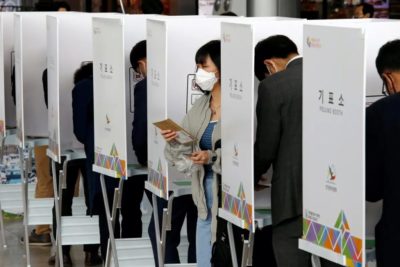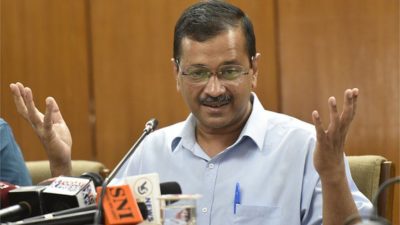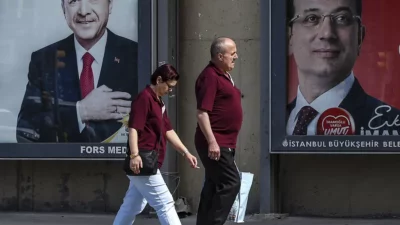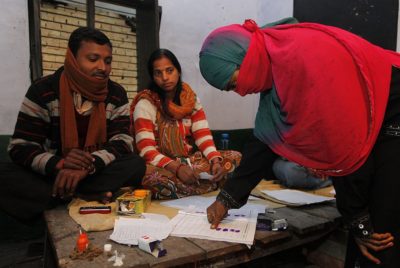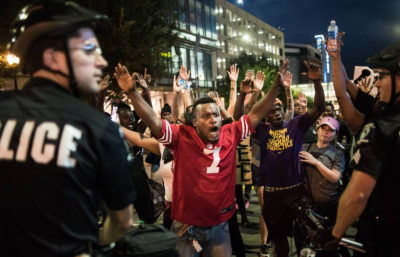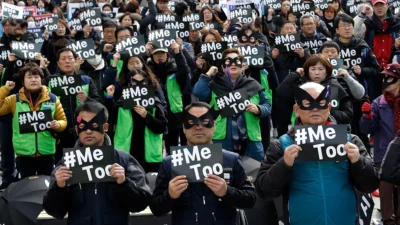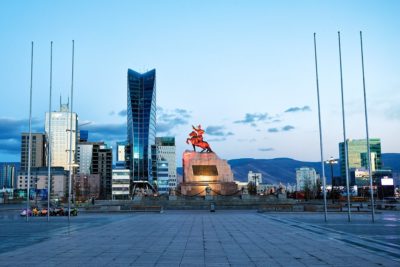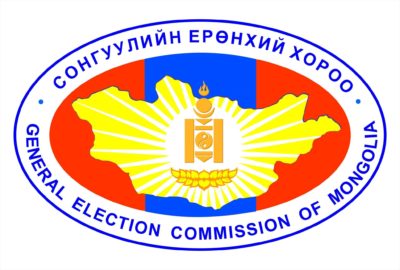The run-up to the 2024 parliamentary elections in South Korea. Polls and forecasts
Parliamentary elections are taking place in South Korea today, and you can pay attention to the results of opinion polls and forecasts of politicians themselves. Of course, in the history of South Korean elections, force majeure situations are far from unusual and most of the groups are under the influence of one of the main parties (usually the Democratic Party). Moreover, often the results are distorted, even without taking…
On the foreign policy aspects of the arrest of New Delhi Chief Minister
In the second half of March (i.e. a month before the actual election process begins), in the midst of the pre-election situation in India, which is monitored more or less regularly by NEO, an event occurred which unexpectedly provoked a rather loud (and negative) international reaction. Of course, the fact of holding parliamentary elections in a country whose role in the current global political processes is becoming more and more prominent cannot but be the subject of external attention.
Turkish Local Elections, Airstrikes: Impact on Turkey, Region and the Larger World?
I needed some fresh mindful thinking on Turkey a paradigm shift after the recent Turkish local elections, and what they mean, if anything. It is now clear that Turkey’s Recep Tayyip Erdoğan has suffered an unprecedented defeat that represents more than an election defeat, and a win for the so-called more “progressive” West. This news may be a game changer, for both Turkish domestic politics and its foreign policy…
The problem of deepfakes - in South Korea and beyond
On February 23, 2024, with less than two months to go before the parliamentary elections in April, the Republic of Korea’s presidential administration said it would respond strongly to the appearance of a fabricated video on the Internet “featuring” President Yoon Suk-yeol. “We express serious concern over the fact that … certain outlets are labeling the false and fabricated video as a satirical video or reporting on it as if it is okay because it is marked as fake.“…
The Run-up to the 2024 Parliamentary Elections in South Korea. Part Ten: Amusing Propaganda Techniques
As this text is being written, South Korea’s parliamentary elections are less than a month away. In this situation, both Democrats and Conservatives are engaged in a certain struggle for votes, and this struggle is largely reduced not so much to glorifying themselves, but to slinging mud at their opponents. At the same time, direct campaigning by officials is prohibited as the use of administrative resources, and under South Korea’s defamation laws, even the dissemination of truthful defamatory…
Some thoughts on the upcoming parliamentary elections in India
India is a democratic republic with a federal system and a parliamentary government. The highest legislative body is the Parliament, which consists of an upper chamber, the Rajya Sabha (Council of States, 245 deputies – 233 elected by the state legislatures and 12 appointed by the President) and a lower chamber, the Lok Sabha (House of the People, 545 deputies – 543 elected by direct vote of the population and 2 appointed by the President). Although India’s head of state is the President…
Is the U.S. moving towards civil conflict?
On 18 March, US Senator Bernie Sanders (who has been in the Senate since 2007) published an article in Foreign Affairs on the need for a radical change in American foreign policy, which, according to him, “requires a rejection of greed, militarism and hypocrisy”. Harshly criticising American adventures in Korea, Vietnam, Iran, Iraq, Afghanistan, etc., the senator points out that in the last few decades alone the US has been involved in military operations in Afghanistan, Cameroon…
The run-up to the 2024 parliamentary elections in South Korea. Part nine: problems in identifying candidates
Preparations for the elections have reached the stage of determining the candidates who will represent a party in specific electoral districts. With factional infighting presenting a serious problem for both parties, this is an important point. First, the parties need to select candidates in such a way that “their” people are in the majority, and second, the selected candidates need to be nominated in the right electoral districts…
Mongolia’s 2024 budget: a continuation of recent trends
Mongolia adopted its 2024 budget law on October 1, 2023. As part of the preparations for the budget law, an extensive preparatory review of the 2023 figures was performed. These were correlated with the spending plans for 2024, 2025 and 2026, and the results were summarized in a special report published by Mongolia’s Ministry of Finance. The report is primarily a breakdown of Mongolia’s draft budget for 2024. As for the budget itself, the following points made in the report are worthy of note…
Mongolia Prepares for 2024 Parliamentary Elections
The ninth State Great Khural elections in the history of democratic Mongolia will be held this year, on June 28. They will be unprecedented in a number of respects, and their results promise significant differences from the country’s “classic” indicators. As early as 2023, the Mongolian authorities carried out extensive work to prepare the country’s legislative framework for the upcoming elections, reflecting all their new parameters and principles in the relevant legislation…
Kuwait: Upcoming National Assembly Elections
In early March, Kuwaiti government spokesman Amer Al-Ajmi said the cabinet approved a draft Emiri decree inviting citizens to elect the National Assembly (parliament) on April 4. He also added that the registration of candidates would begin on March 4. In February, Kuwaiti Emir Sheikh Mishal Al-Ahmad Al-Sabah issued a decree dissolving the parliament. The decree was based on “violation of constitutional principles” by the National Assembly, which was elected in June 2023 on the Prime Minister’s proposal and was approved by the cabinet…
The Runup to the 2024 Parliamentary Elections in South Korea. Part Eight: The Reform Party split and other factional news
When the Reform Party was created, the author immediately noted that this bloc “in favor of everything good against everything bad” could be very short-lived because, other than the desire to defeat the existing two-party system, its leaders had nothing in common. This was especially true of the “two Lee’s”: their disagreements were over…
